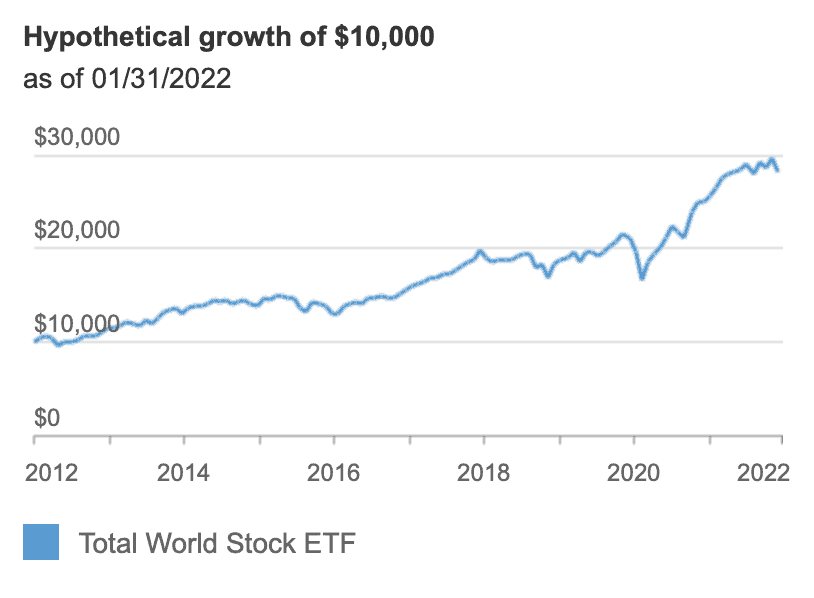Work shapes a third of our lives. If you’re unsure about how to genuinely feel […]
Millionaire Fastlane, Rich Dad Poor Dad and Naval have an interesting take on the differences between money and wealth. They also elaborated on why it is important to seek wealth, not money.
If you have taken an Economics class before, you would have learnt about money. It’s defined as a store of value, medium of exchange or unit of currency. Money is what you get in exchange for your time. When you do your job and create value for society, you receive payment for the work done in the form of money.
With the earned money, you can buy assets to generate wealth. In Naval Ravikant’s terms: wealth is the assets that work for you.
Unfortunately, wealth is not taught in school because education is designed for general knowledge such as arithmetic, reading and writing; not wealth creation.
Robert Kiyasaki had explained the cause of it and dived deep into the reasons in his book “Rich dad, Poor Dad” and this interview.
An asset is a resource with economic value that one owns or controls with the expectation that it will provide a future benefit. Examples are stocks, bonds, real estate and businesses etc. You can buy or build these assets.
When you have enough assets that generate money for you, you don’t need to rent out your time in exchange for a salary.
Wealth is attractive as you will get passive income, while you are asleep.
Real wealth can be created by starting your own companies or even by investing. These routes to wealth don't come through the hours.
To become an owner, you have to work up to the point where you can own equity in a business. There are 2 ways. You could own equity as a small shareholder where you bought stock. You could also own it as an owner of your company.
Tim Ferriss illustrates the differences between an employee and an owner, using a train as an analogy: Would you rather be the
- employee that works on the train serving the food and manning the tickets
- boss that has to make sure that the train runs on time.
- owner who has the employee and the boss do the work for you
Why is it desirable to be an owner
it’s challenging to get rich when you are renting out your time. You have to constantly invest your time to earn money. Your input (time) is closely tied to your output (wage).
In almost any salaried job, even for high paying jobs such as being a lawyer or a doctor, you have to put in the hours to earn a salary. If you don’t work, you are not going to be paid.
Without a stake in a business or ownership of assets, you will not earn if you are sleeping, on a vacation or retired. So, you don’t want to be in a situation where the inputs and outputs are closely related. Because the hours put in will matter.
If you want to be wealthy and not exchange your time for money, owning an asset or a business is a consideration. This allows you to earn based on your output and have ownership over your time.
The things you need to build wealth
Building wealth takes time. You have to work your way up to try and get higher leverage, more accountability and specific knowledge.
- Specific knowledge: knowledge that you cannot be trained for. If society can train you (it can be learnt in school), it can train someone else and replace you. Fortunately, you can discover the specific knowledge that you are adept in by pursuing your innate talents, your genuine curiosity and your passion.
- Accountability: taking business risks under your own name. It lets you take credit when things go well but bear the brunt of the failure when things go badly.
- Business leverage: comes from people, capital and products with no marginal cost of replication
If you want to be wealthy, you have to figure out what to provide to the society and then scale it.
How to start building wealth in your 20s
The practical way to build wealth early on is to focus on generating a high income, decreasing your expenses and investing the rest. During the process, do the work that you like and use your free time to pursue your hobbies.
Increasing your income: Have side hustles that you are passionate about, so you have the energy to do it during your rest and relaxation time. These active income will set the foundation to generate wealth.
Decreasing your expenses: Make smart money decisions by thinking clearly. Buy what you need and truly desire. Overcome instant gratification by taking some time to consider before paying.
Invest in assets: your wealth will grow overtime from the compounding effect. You can start with index funds, the simplest and most efficient way of investing.
My thoughts
We probably hear "It's good to have ownership over your own time", "Be your own boss gives you the freedom and money" and "It's good to not work under someone" etc these days.
I still see the value and benefits of being an employee unless you have a solid business idea and sufficient capital to ride the wave of ups and downs that a business would face. Being an employee means you have a stable monthly pay, able to save consistently, work alongside with your colleagues and discover your interests in your free time.
Relatively speaking, being an employee means having a lower opportunity cost should a mistake or business plan fail. It's easier for an employee to start from scratch without bearing the financial debt.
How many people are willing to give up their time at the start to build a business, and stay the course until the rewards can be reaped?
Some are suited to be a employee. Some aren't. There is no such thing as a a perfect route to take.
Thank you for reading! Please like my Facebook page to get the latest updates.







